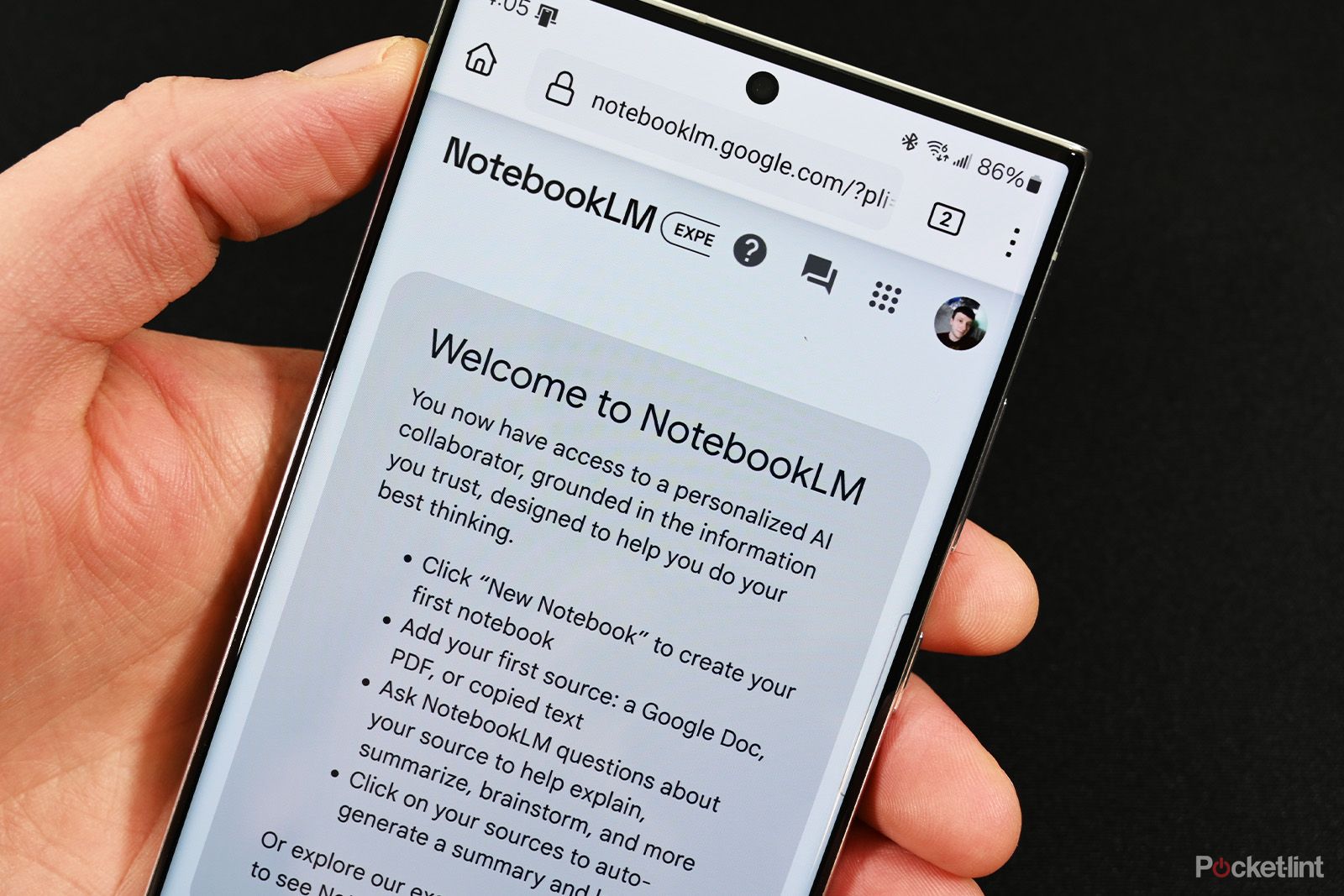[ad_1]
Key Takeaways
- NotebookLM, Google’s new AI-powered notebook app, is now available to US users.
- Users can create notebooks, jot down notes, and interact with an AI chatbot to enhance their note-taking experience.
- Alongside expanded availability, Google has added new features, with more to come in the future.
Google has officially launched NotebookLM for the US starting today. The AI-powered notebook app is part of the company’s Experimental Labs incubator, and it originally debuted at Google I/O 2023 to a small number of beta testers. It combines the task of taking notes with the advanced capabilities of LLMs, leveraging Google’s recently announced GPT-4 competitor, Gemini.
NotebookLM is only available to folks in the US who are 18 and up. If that sounds like you, and you want to try it, head to notebooklm.google.com and check out the tool. You’ll need to sign in with your Google account if you aren’t already.
How does NotebookLM work?
Joe Hindy / Google / Pocket-lint
As stated, it combines note-taking along with AI. There are several main parts of NotebookLM. They include the notebook, notes, sources, and an AI chatbot. They work together in order to improve your note-taking experience. At least, that’s what Google is hoping for.
You start by creating a notebook. Inside, you can take regular notes, as you see in the screenshot above. There is also a sidebar where you can upload source material. I used an old benchmark document from my Google Drive there. Along the bottom, you have the NotebookLM AI chatbot. This is all housed in the original notebook and each notebook has its own space for notes, sources, and the chatbot.

Google launches Gemini AI, its answer to GPT-4, and you can try it now
Gemini AI is here to take on GPT-4, with support for multiple forms of data input, like text, images, video, and audio. And you can try it now.
From there, everything works more or less as you would expect. You can add notes that contain whatever information you want. Once you upload sources, you can ask the chatbot questions about those sources. It’ll also suggest questions if you’re having trouble knowing what to ask. In the example screenshot above, it wants me to ask about the overall benchmark score for my ASUS G75VW laptop that I owned many years ago.
There isn’t an official app for smartphones or anything like that. For now, it’s only available through Google’s website, but you can visit that site on your smartphone, and it still works normally.
New features for NotebookLM
Joe Hindy / Pocket-lint
In addition to the launch, Google boasts that it’s added over a dozen new features to the app. These features are widespread across the app, so let’s go over each of them.
- Increased source limit – Notebooks can have up to 20 sources.
- Increased word count (for sources) – Sources added to a notebook can be up to 200,000 words.
- Write individual notes – Adding a basic note will create an independent note instead of adding the note to an existing notebook.
- Noteboard – You can now see your written and saved notes pinned to the Noteboard space above the chat box.
- Save chat responses as notes – NotebookLM’s AI chat responses can be pinned to the noteboard for later reference.
- Citations saved to notes – When you save AI chat responses as notes, they will retain their original citations.
- Jump to citation in source – When you click on the citation number in a chat response or a saved note, NotebookLM will take you directly to the original quote in the source.
- Expand/collapse source section – It is now possible to hide the source if you want to focus on just note-taking.
- Focus the AI on selected sources – It’s not possible to chat with AI about specific sources in your notebook by selecting them individually in the source sidebar.
- Source guides integrated into individual sources – Source guides, including summaries and key topics, now appear at the top of each source in the source sidebar.
- Shared notebooks – Enabled collaboration in both viewer and editor modes, similar to how it works in Google Drive or Google Keep.
- Suggested questions – NotebookLM suggests followup questions based on your recent conversation history with the chat AI.
- PDF support – You can now upload PDF files as sources in NotebookLM. PDFs can be up to 100MB in size or the aforementioned 200,000-word limit.
- Copied text support – You can now copy and paste text to create a new source and add or edit the title when creating it.
- Example notebooks – Google added some example notebooks, so you can see and test how NotebookLM works before creating your own.
Google is also adding some more features next week, including the ability to combine notes, receive constructive criticism from NotebookLM, summarize multiple notes, create outlines, create study guides, and more.
In the short-term, at least, it’s unlikely that NotebookLM will usurp the role Google Keep plays in the company’s software portfolio. However, with the race to AI being as aggressive as it’s ever been, it wouldn’t be terribly shocking to see some of these features end up in other Google apps or even spun off into a full-blown app of its own someday.
[ad_2]
Source link





